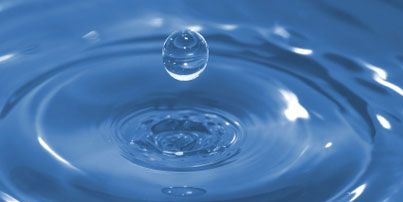
Coping with water scarcity
On World Water Day, March 22, UNICEF reported that an estimated 425 million children under the age of 18 continue to face water shortages. Knowing that so many children around the world don't have access to this vital resource is what motivates Dr. Van-Thanh-Van Nguyen, the director of the Brace Centre for Water Resources Management, to find water accessibility and quality solutions.
For the past six years, the McGill research centre based on the Macdonald Campus has celebrated World Water Day by presenting the latest findings of its professors and graduate students. As Dr. Gaétan Faubert, the keynote speaker at this year's event emphasized, "solutions to water problems require the implication of experts in different areas." The Brace Centre draws together agricultural, environmental, engineering and parasitology experts from several McGill faculties to ensure that water resources are managed in a manner that is both sustainable and supports economic and social development.
Dr. Faubert, a specialist in immunology and waterborne diseases and professor at the Institute of Parasitology, developed a new type of vaccine called a trans-mission blocking vaccine aimed at stopping the spread of giardia, a non-fatal parasitic disease on its own that can kill when combined with other infectious agents.
Waterborne diseases can also be found in Canada, as was the case in the Walkerton, Ont. tragedy. Cryptosporidium oocysts and giardia have been found in surface water, treated water and used water in several Canadian municipalities. They can be eliminated only by filtration, not chlorination, but even filtration is sometimes not enough.
Water shortages in the province of Quebec will also become a reality according to Environment Canada, which predicts that, "In 2055, the Great Lakes could fall by an average of between 0.5 m and 1.0 m, according to typical scenarios. The St. Lawrence River outflow could be reduced by 20 percent." The increasing competition for water caused by climate change means the reassessment of much of our traditional water use.
For instance, Michel Baraer, the first student who will graduate from the new master's program in Integrated Water Resource Management, wanted to know the impact of rising temperature on spring frost. Baraer and his supervisor, Dean Chandra Madramootoo, have predicted that damaging spring frosts will continue to occur and possibly increase in frequency for apple trees in Quebec, affecting fruit production and revenue. One way to prevent frost injuries is to irrigate. This is not a problem when water is abundant, but in a world in which water is an increasingly precious commodity, it is one more challenge for the experts at Brace to address.
Abstracts from the World Water Day presentations can be found at www.mcgill.ca/brace/symposia/colloquium/

